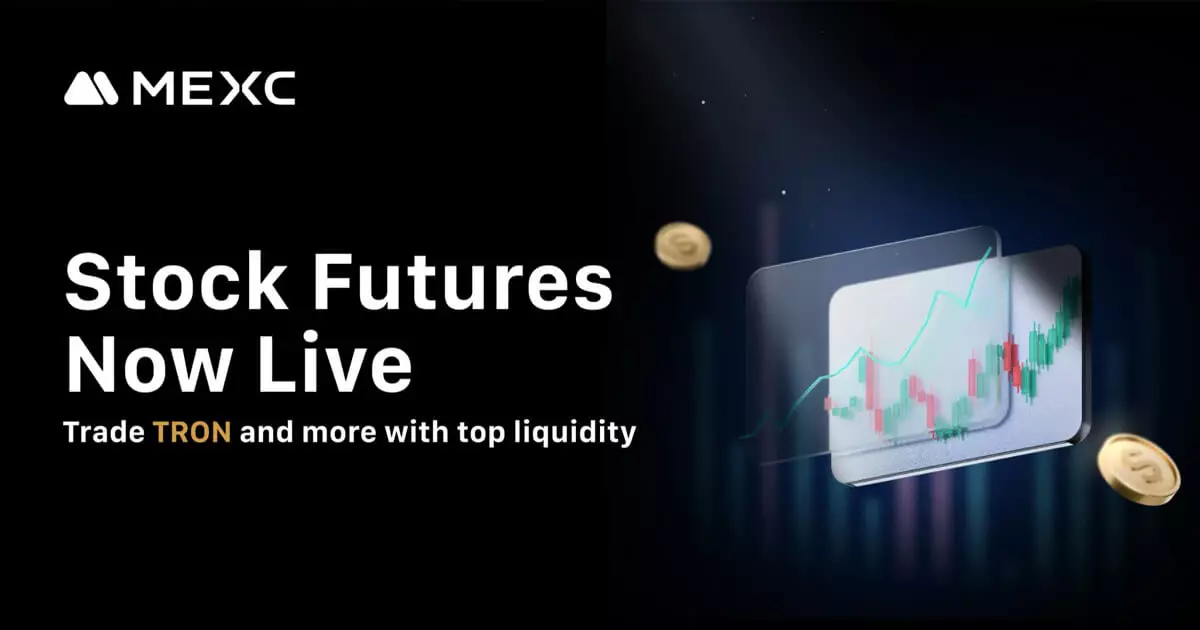The recent announcement by MEXC to list Tron Inc. (NASDAQ: TRON) stock futures on a cryptocurrency platform exemplifies a troubling trend—it blurs the lines between traditional finance and digital assets, creating an illusion of democratized control while potentially consolidating power within select corporate and technological elites. Although on the surface it offers retail traders unprecedented access to U.S. public companies via familiar crypto instruments, it subtly shifts the risk profile and erodes regulatory safeguards designed to protect investors. The promise of zero trading and funding fees, high leverage, and deep liquidity masks the fact that these derivatives are rooted in complex financial engineering often inaccessible to ordinary individuals—especially when paired with volatile assets like cryptocurrencies. Far from empowering the average investor, such innovations risk turning markets into speculative playgrounds, divorced from the real-world economic value and accountability traditionally associated with public companies.
The Risks of Mixing Traditional Assets with Crypto Infrastructure
This move to integrate stock futures with crypto trading platforms is a double-edged sword. On one hand, it introduces convenience and liquidity; on the other, it represents a fundamental shift that redefines how markets are accessed and understood. The critical flaw lies in the perceived stability of traditional corporations and the blockchain ecosystem’s inherent volatility. When users trade Tron Inc. stock futures in a crypto environment, they may underestimate the implications of leverage and instant liquidity, exposing themselves to massive losses during market swings. Furthermore, the reliance on crypto infrastructure—known for its susceptibility to hacks, severe slippage, and regulatory ambiguity—undermines the very transparency and security that public markets have historically offered. Instead of democratizing wealth and investment opportunities, this hybrid model risks intensifying inequalities, benefitting institutional players with deep pockets who can exploit the system’s loopholes.
What It Means for Market Integrity and Investor Confidence
Central to the issue is whether this convergence fosters real innovation or engenders systemic fragility. While proponents argue that integrating traditional stocks with crypto platforms democratizes access, skeptics warn it could dilute market integrity. The regulatory environment remains murky at best, with jurisdictions struggling to keep pace with rapid technological advancements. In such a landscape, retail investors may be lured into risky strategies driven more by hype than sound analysis. Moreover, the potential for market manipulation and artificial volatility increases exponentially when derivatives tied to public companies are traded on platforms lacking rigorous oversight. This setup benefits cryptosphere insiders and short-term speculators at the expense of long-term value creation and genuine market health—undermining trust in the very systems that underpin capitalism.
Reevaluating the Promise of Modern Finance
The allure of merging crypto with traditional equities is seductive, yet it masks a deeper reality: the pursuit of quick profits often comes at the expense of financial stability. These innovative yet risky financial products threaten to overturn the principle of responsible investing—one that balances growth with regulation and investor protection. Central-right perspectives should remain vigilant; instead of celebrating unchecked expansion into nebulous markets, we ought to demand clearer regulations, transparency, and a cautious approach that recognizes the sovereignty of established financial institutions. The encryption of securities into digital derivatives may be technologically impressive, but it remains inherently risky—risk that, if poorly managed, could destabilize markets and harm investors ultimately seeking safe, predictable growth.

